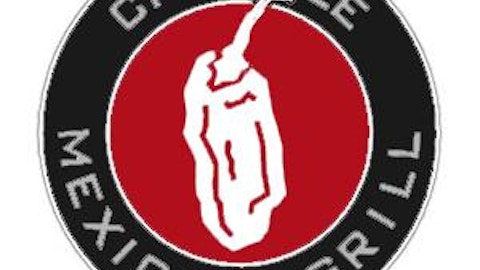Corporate social responsibility, or CSR, is catching on among major corporations. Over half of Fortune 500 companies produce a CSR report alongside their annual report.
Companies approach CSR in many different ways. Some take a broad approach by making donations to a number of different causes, others tackle one specific problem (such as fuel emissions or poverty), still others integrate CSR into all aspects of their operations.
While companies that implement CSR undoubtedly help advance social goals, the impact on shareholder value is debatable. However, a closer look at CSR companies’ performance gives investors hints as to whether CSR increases shareholder wealth or decreases it.

A sampling of corporate goodwill
First, let us take a look at a few corporate social programs:
1). Kraft Foods Group Inc (NASDAQ:KRFT) takes a broad approach to CSR; it has numerous programs that aid in social welfare. The Kraft Foods Foundation fights hunger and malnutrition in Latin America, Africa, and elsewhere. It also sources fair trade products and donates to various charitable organizations.
2). Panera Bread Co (NASDAQ:PNRA) takes a single-issue approach; the company launched a concept called Panera Cares in 2010. Panera Cares locations are similar to the regular Panera Bread Co (NASDAQ:PNRA) locations, but they are run on a not-for-profit basis. Customers order their food and are presented with a suggested donation — the normal price of their food — but are not required to give a donation. Often, customers give more than the suggested donation — covering the cost for customers who are unable to pay for their meal. Thus, Panera Cares helps feed poor communities.
3). Whole Foods Market, Inc. (NASDAQ:WFM) founder and CEO John Mackey coined the term “Conscious Capitalism” to describe his company’s operations. Conscious Capitalism is not charity. Instead, it is a manner of pursuing profit that serves a wider constituency than just the company’s shareholders. In other words, the company integrates its social goals and profit goals into one coherent path.
Impact on shareholder value
Of the three companies mentioned above, Whole Foods Market, Inc. (NASDAQ:WFM)’ stock price has appreciated the most over the last 15 years. Most of the difference in stock price appreciation between these companies can be attributed to their respective industries, growth opportunities, and other business-related factors.
However, a 2004 study that controlled for factors like size and industry found that CSR companies generate a higher return on assets, return on equity, and return on sales than non-CSR companies. In addition, the Dow Jones Sustainability Index North America has outperformed the S&P 500 by 16 basis points since the start of 2009. This suggests a positive correlation between the pursuit of social goals and profitability.
A positive correlation between the two makes sense. For instance, a company that pollutes excessively or uses child labor in a foreign country may face government sanctions or consumer boycotts. Adopting lower-emission vehicles and optimizing delivery routes reduces companies’ environmental impact and fuel costs.
Even among companies that practice CSR, there is a difference in how effective each program is for adding shareholder value. Whole Foods Market, Inc. (NASDAQ:WFM) sells high-quality, natural products. This provides incentives for suppliers to produce natural and organic products, making these healthy products more plentiful and (eventually) less expensive. It also encourages sustainable agriculture, which conserves valuable farmland. It also creates healthier people.
Whole Foods Market, Inc. (NASDAQ:WFM) also serves its employees well. Besides paying employees a living wage, the company provides health savings accounts and catastrophic health insurance to team members. This makes employees appreciate the company, motivates them to provide good service to customers, and provides a safety net when the unexpected occurs.
By wholeheartedly embracing its corporate goals, Whole Foods Market, Inc. (NASDAQ:WFM) has gained a cult-like following among like-minded consumers. This has created enormous value for shareholders and will do so for years to come.




